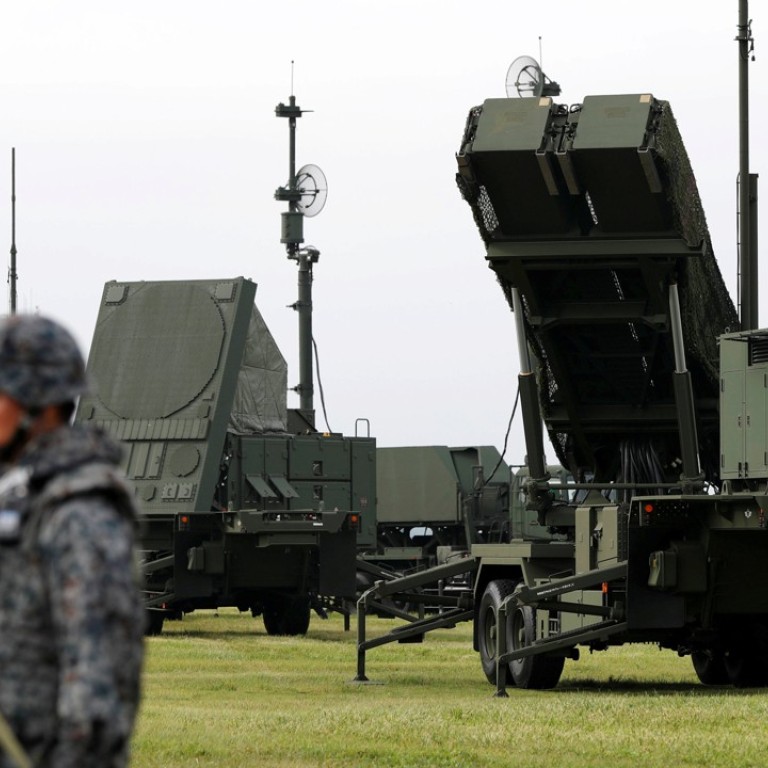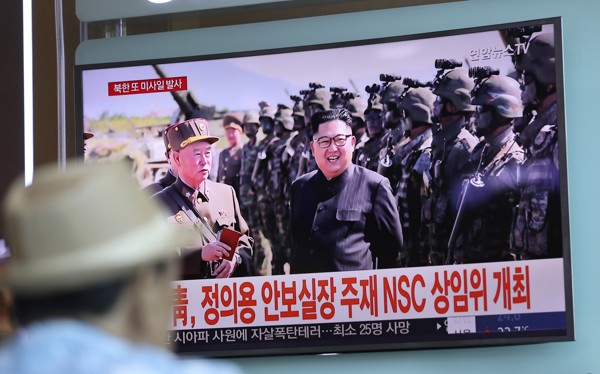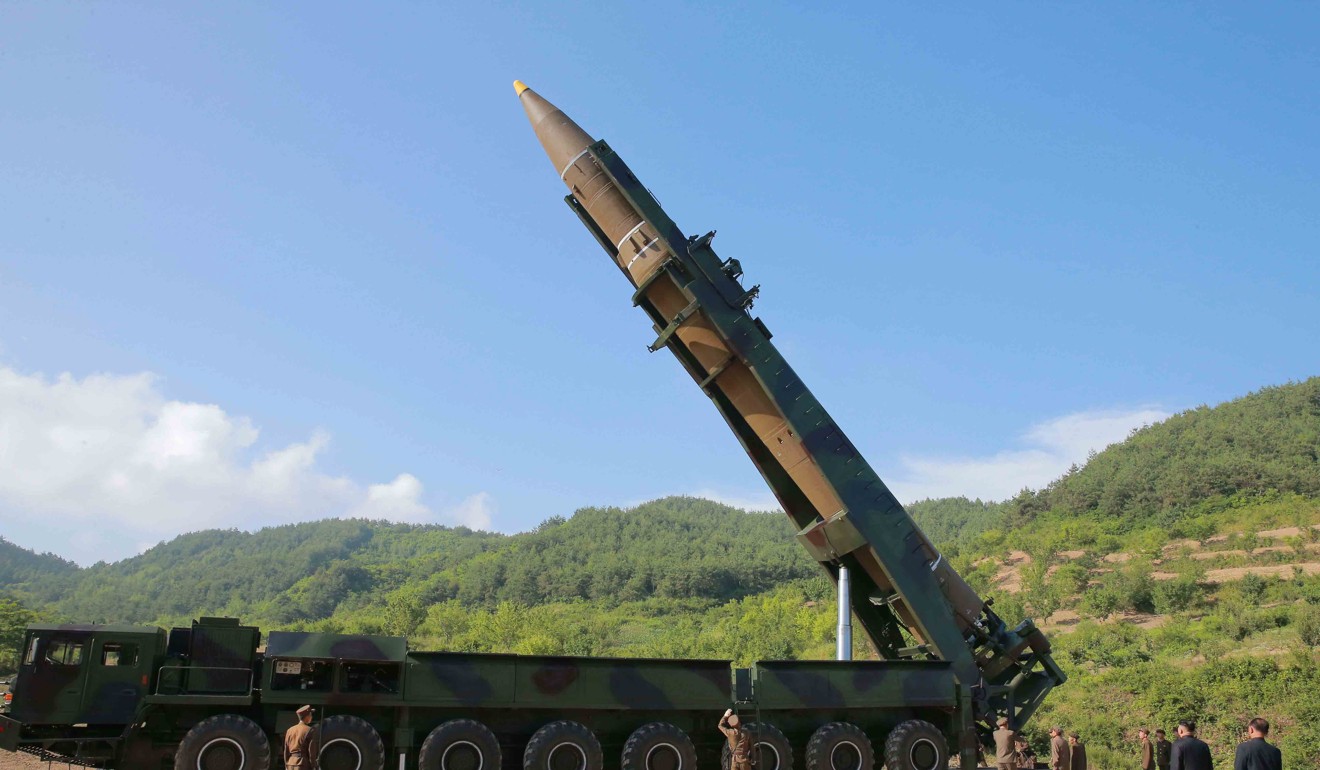
Update | Hong Kong stocks snap five-day rally after North Korea fires missile over Japan
Hong Kong stocks fell for the first time in six days on Tuesday on concern about geological tensions after North Korea fired a missile over northern Japan.
The Hang Seng Index dropped 0.4 per cent, or 98.28 points, to 27,765.01, ending a five-day, 3 per cent gain. The Hang Seng China Enterprises Index, or the H-share gauge, also retreated 0.4 per cent. Trading volumes on the city’s bourse were 11 per cent below the 30-day average, according to data compiled by Bloomberg. Mainland’s equity benchmarks rose for a third day.
Traders sold stocks and snapped up gold as a safe haven after the missile passed over Hokkaido, Japan’s northernmost main island, around 5:06am Hong Kong time, broke into pieces and landed in the waters off its east coast, according to Japanese broadcaster NHK. It was Pyongyang’s second missile firing in three days after three short-range ballistic missiles launches failed on Saturday. Spot gold prices rose 1.2 per cent to US$1,325.62 an ounce, the highest level in 11 months.
“North Korea’s missiles have triggered risk-aversion market sentiment, but selling isn’t too serious,” said Louis Tse Ming-kwong, a director of VC Brokerage. “It is unlikely this will lead to any real action from the US. Accelerated state-owned enterprise restructuring and a stronger yuan are positive to China and Hong Kong stocks.”
Equity losses were limited as the onshore yuan rose 0.3 per cent to 6.5954 against the US dollar, the strongest level since June 2016. The Hang Seng Index is the best performer among Asian markets this year with a 26 per cent gain, thanks to a stronger yuan and as lower valuations spurred fund inflows from mainland investors through the exchange link programmes.
Financials led the decline on Tuesday, with Bank of China falling 0.2 per cent to HK$4.10 as the most heavily traded stock on the Hang Seng Index. HSBC slipped 0.7 per cent to HK$74.80 and China Construction Bank lost 0.3 per cent to HK$6.98. China Life sank 1.6 per cent to HK$24.90 and AIA Group eased 0.9 per cent to HK$59.25. Ping An Insurance Group edged down 0.2 per cent to HK$62.90.
Internet giant Tencent Holdings slid 1 per cent to HK$319.80, extending a 1.6 per cent decline on Monday.
Evergrande surged 12 per cent to a record high of HK$25.50 after the Chinese developer reported a whopping 832 per cent jump in first-half profit to 18.8 billion yuan (US$2.84 billion) on Monday, as property sales soared and prices climbed.

The Shanghai Composite Index gained 0.1 per cent, or 2.57 points, to 3,365.23 while the CSI 300 Index, which tracks large companies listed in Shanghai and Shenzhen, dropped 0.2 per cent.
Defence stocks slid after India and China appeared to end a months-long military standoff in the Himalayas. China’s foreign ministry said yesterday that India withdrew personnel and equipment from its territory, while India said both sides agreed to an “expeditious disengagement” of troops at Doklam, a plateau near the Indian border that is claimed by both China and Bhutan
Jiangxi Hongdu Aviation Industry slumped 4.1 per cent to 17.65 yuan in Shanghai and North Navigation Control Technology lost 3.4 per cent to 15.18 yuan. Avic Heavy Machinery dropped 3.6 per cent to 14.71 yuan.
Meanwhile the dollar traded near a four-month low against the yen early on Tuesday after the missile firing. US shares has been mixed on Monday as investors assessed the flood damage to US energy hub of Texas, caused by Tropical Storm Harvey.

US crude futures rose 0.5 per cent to US$46.81 per barrel after sliding by as much as 3.6 per cent to a one-month low yesterday over concerns that the refinery shutdowns could trigger an increase in crude inventories.
The Dow Jones Industrial Average fell 5.27 points or 0.02 per cent at 21,808.40, the S&P 500 inched up 1.19 points or 0.05 per cent to 2,444.24. Meanwhile the Nasdaq Composite edged up 17.37 points, or 0.3 per cent, at 6,283.02 .


